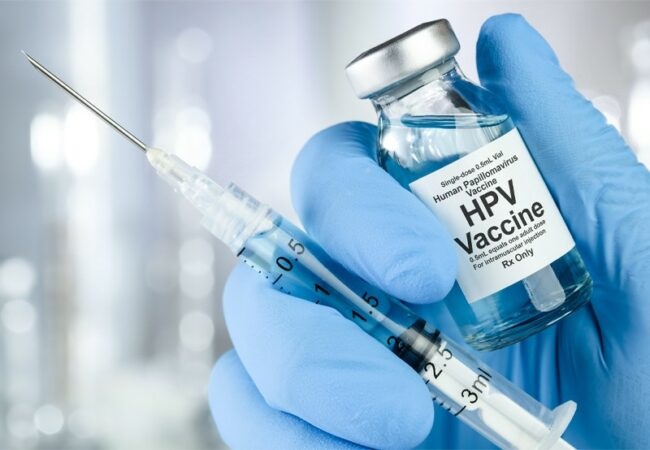The Lagos State Primary Health Care Board (LSPHCB) says it has administered human papillomavirus (HPV) vaccines to 40 percent of targeted girls in Lagos.
The Permanent Secretary of LSPHCB, Dr. Ibrahim Mustafa, spoke about it in Lagos on Wednesday.
Human papillomavirus (HPV) is a common sexually transmitted virus, with the majority of cervical cancers and other HPV-associated cancers caused by HPV types 16 or 18.
The Federal Government introduced the HPV vaccine on October 24, 2023, into the routine immunization system to prevent cervical cancer among girls aged nine to 14 years.
The vaccination targets 7.7 million girls, which is the largest number in a single round of HPV vaccination in the African region.
The girls will receive a single dose of the vaccine, which is highly efficacious in preventing infection with HPV types 16 and 18 that are known to cause at least 70 percent of cervical cancers.
Lagos is among the 16 states in Nigeria slated for the Phase 1 introduction of the HPV vaccine through multi-age campaign-style strategies targeting girls aged nine to 14 years in schools and communities.
On Oct. 30, Lagos State introduced HPV vaccines into its routine immunization programme.
Mustafa, however, noted that the state’s HPV vaccination programme suffered low uptake after its introduction due to misinformation that led to vaccine hesitancy and apathy.
“The coverage is still low; we expect that by now, we would have done 100 percent of the targeted girls, but we’ve only managed to do 40 percent.
“Initially, there were serious challenges with the programme to the extent that they almost beat some of the vaccine implementers.
“There was a WhatsApp message that went viral saying that the vaccine would sterilize, kill girls, and depopulate blacks.
“That voice note caused a lot of harm; people didn’t want to hear about the vaccine. Even in schools, they shut their gates against us.
“It’s unfortunate that people were against the HPV vaccine, and because of that, our other immunization campaigns, like the oral polio vaccine that had acceptance, people started rejecting it,” he said.
To remedy the situation, Mustafa said that the board embarked on a massive media campaign, intensified its advocacy and dispelled the rumors and misinformation about the vaccine.
According to him, there is currently an improvement and attitudinal change to the vaccine, hoping that the improvement will be sustained.
Toward boosting HPV vaccine coverage in the state, Mustafa disclosed that the HPV vaccine would be integrated into the state’s National Immunization Plus Day (NIPD) programme.
NIPD is aimed at protecting children under five years of age from poliomyelitis and is scheduled to commence on November 25 in Lagos.
Mustafa added that people can still get the HPV vaccines at PHCs even after the campaign ends until the end of 2024.
He emphasized that the vaccine was free and delivered solid protection against HPV, the virus that causes cervical cancer.
Data from the World Health Organization (WHO) shows that in Nigeria, cervical cancer is the third most common cancer and the second most frequent cause of cancer deaths among women aged between 15 and 44 years.
According to WHO, Nigeria recorded 12,000 new cases and 8,000 deaths from cervical cancer in 2020.


